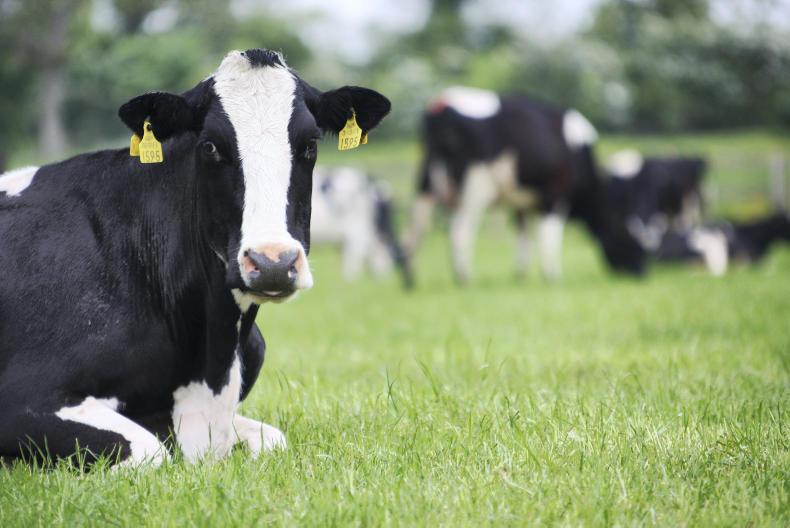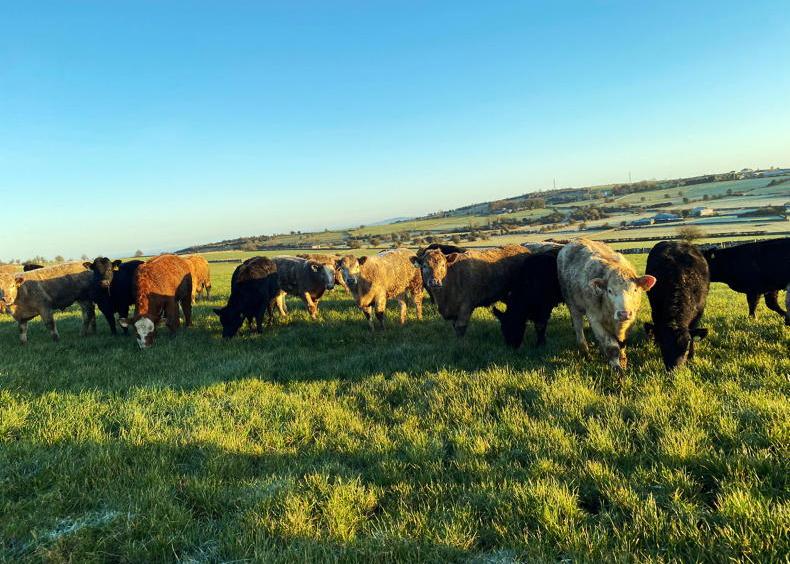On some farms, more than one cow was lost. Bloat is caused by a build-up of froth in the cow’s rumen, preventing the release of gas, which causes the stomach to swell up and the cow eventually suffocates due to the pressure of the gas. It is the digestion of lush swards that causes the froth to build up, hence why clover swards are so risky for bloat.
The speed of bloat
The speed at which bloat can affect a cow is frightening.
In severe cases, a perfectly healthy cow can turn into a dead cow in the space of 30-40 minutes. In other cases, you get more time to react.
Highest risk periods are usually after morning milking, on damp or misty days, and when cows go into a paddock for the first time.
Cows can get bloat on grass-only swards, but where there is clover there is an added risk, as animals tend to gorge on clover.
Prevention and awareness
Prevention starts with awareness. If you think there is a risk, include bloat oil in the water.
Cows should be on bloat oil about 12 hours before going into the risky paddock, so it is not always feasible.
Putting bloat oil in the water every day can be expensive, especially if there are only a few paddocks that are particularly risky. Another option in those high-risk paddocks is to put up a strip wire for the first three hours.
This will force the cows to graze down well and reduce the risk of them gorging on clover.
Read More
Can liquid milk production survive?
Decision time for Irish Dairy Industry?
On some farms, more than one cow was lost. Bloat is caused by a build-up of froth in the cow’s rumen, preventing the release of gas, which causes the stomach to swell up and the cow eventually suffocates due to the pressure of the gas. It is the digestion of lush swards that causes the froth to build up, hence why clover swards are so risky for bloat.
The speed of bloat
The speed at which bloat can affect a cow is frightening.
In severe cases, a perfectly healthy cow can turn into a dead cow in the space of 30-40 minutes. In other cases, you get more time to react.
Highest risk periods are usually after morning milking, on damp or misty days, and when cows go into a paddock for the first time.
Cows can get bloat on grass-only swards, but where there is clover there is an added risk, as animals tend to gorge on clover.
Prevention and awareness
Prevention starts with awareness. If you think there is a risk, include bloat oil in the water.
Cows should be on bloat oil about 12 hours before going into the risky paddock, so it is not always feasible.
Putting bloat oil in the water every day can be expensive, especially if there are only a few paddocks that are particularly risky. Another option in those high-risk paddocks is to put up a strip wire for the first three hours.
This will force the cows to graze down well and reduce the risk of them gorging on clover.
Read More
Can liquid milk production survive?
Decision time for Irish Dairy Industry?










SHARING OPTIONS